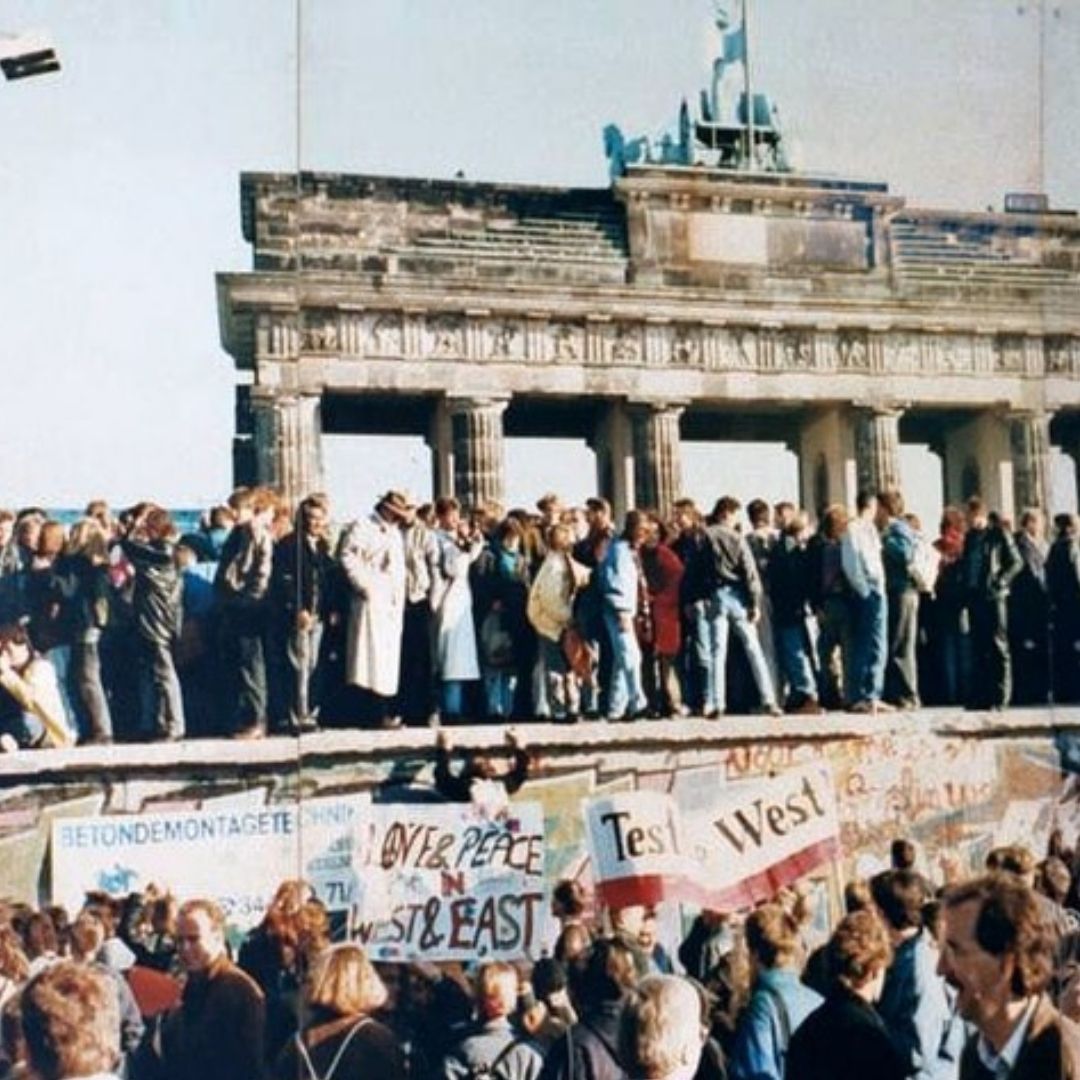
Image Credits: Wikimedia
Looking At The Berlin Wall From India's Perspective
Writer: Akanksha Saxena
I am a budding journalist who loves to write stories that have the ability to connect with people.
Others/World, 9 Nov 2021 12:45 PM GMT
Editor : Ankita Singh |
A literature lover who likes delving deeper into a wide range of societal issues and expresses her opinions about the same. Keeps looking for best-read recommendations while enjoying her coffee and tea.
Creatives : Akanksha Saxena
I am a budding journalist who loves to write stories that have the ability to connect with people.
The Berlin Wall's demolition in 1989 was a pivotal moment in global history. In their own ways, this had an impact on national and international politics, including that of India.
The Second World War ended in 1945 and it left a lot of destruction in its wake. What started as a war against Fascism ended up leaving Germany dilapidated and divided. However, it did not end here. The power struggle between the countries involved followed a silent yet dangerous unrest. This gave rise to the Cold War, which gave rise to political tension between the United States and the erstwhile USSR.
While there were no weapons involved, this was as deadly as any other war. Incidents like the Cuban Missile Crisis, Vietnam War, Sino-Soviet Split, etc, had both countries' allies involved in the fight that lasted for over 40 years. Not just them, the entire world became involved in this bit by bit.
The Berlin Wall- Division Of Germany
In 1945, the Potsdam Conference takes place from June 17 to August 2, to decide Germany's fate. It was attended by the Allies consisting of the United States, France Soviet Union and Great Britain. There, it was decided to divide Berlin into four occupational zones. The three zones in the Western part were taken by the USA, Great Britain and France, whereas the eastern part was Soviet Union's.
The year 1948 became a turning point that gave rise to events leading to the Berlin Wall formation. The famous 'Berlin Blockade' took place where the USSR blocked all access to West Germany, resulting in land and water transit routes being cut off. The Allies started to provide Berlin with the necessary resources with the help of aeroplanes. This went on for 11 months, where the tension only escalated further. West Germany became 'Federal Republic of Germany' with its capital being Bonn, whereas East Germany was called 'German Democratic Republic'.
The communist regime in East Germany was not popular. A Workers' Revolt took place in 1953, demanding better working and living conditions. The government brutally crushed the protests that only gave rise to more resentments. Eventually, in 1961, the wall was constructed to prevent people from the Eastern part fleeing away. It was nothing short of a prison as the barrier came to be covered with barbed wires all over. For over 20 years, the wall divided a city that was bearing the brunt of Hitler's actions. On November 9, 1989, the wall was taken down after much criticism.
The Indian Perspective
Like mentioned earlier, the Cold War had an impact not just on the two countries involved, but on the world as well. It completely changed the geopolitical dynamics. While some decided to take sides, some took a neutral stand. A paper titled '20 years after the fall of Berlin Wall - A view from India' written by Ummu Salma Bava dwells into Berlin Wall's effect on India.
When the country became independent in 1947, it was still acquainting itself with the ongoing international dynamics. As the Cold War escalated, India increasingly found itself aligning with like-minded nations, leading to the formation of the Non-Aligned Movement consisting of countries like Indonesia, Egypt, erstwhile Yugoslavia and Ghana. India maintained a political relationship with both East and West Germany. It also supported the country's unification, which took place after the wall was demolished.
The post-Cold War politics and situation played a role in structuring the country's economic framework, which was heading in a liberal direction from 1990 onwards. Ideologically, it found itself closer to the US and Europe. That being said, the way with which the country moved forward was extremely different from the developed countries. In the era of globalisation, India has found itself at the forefront, joining the big leagues with the major countries and fighting together against climate change, terrorism, etc. The end of the Cold War came with an end to the bi-polarity that it showcased during its time.
Also Read: Remembering Major Somnath Sharma, The Braveheart Who Led The Battle Of Badgam In 1947
 All section
All section














